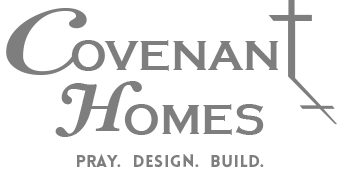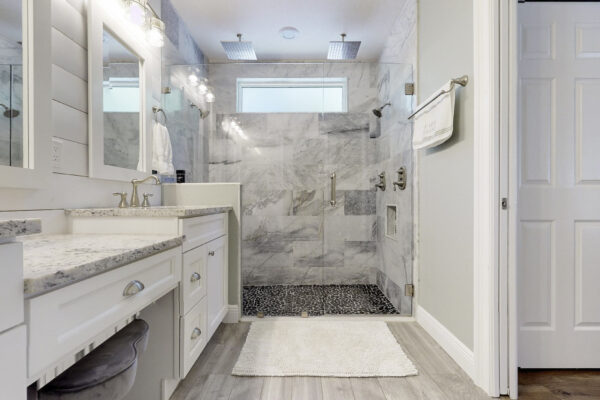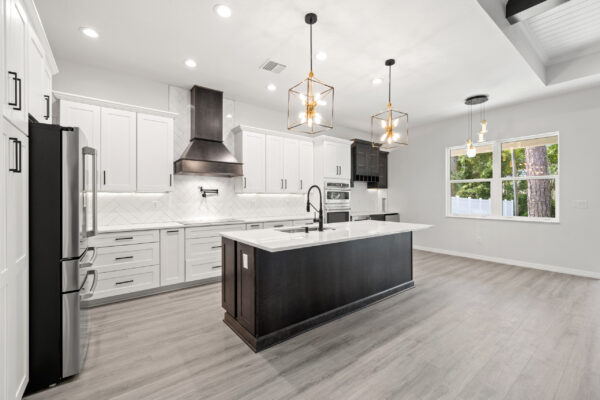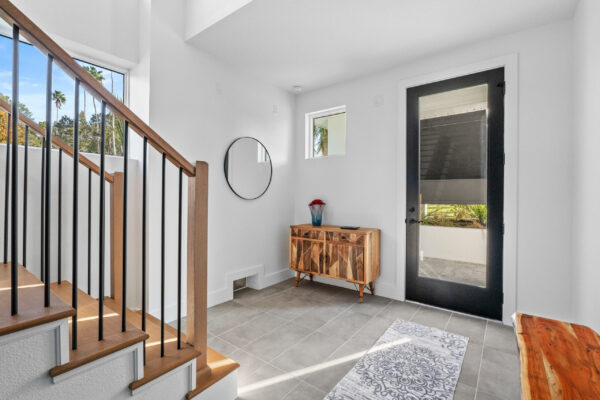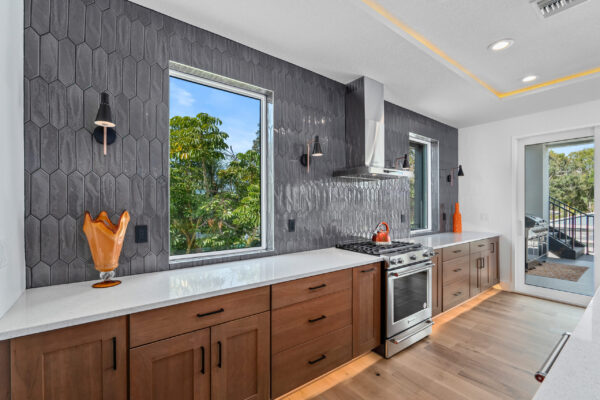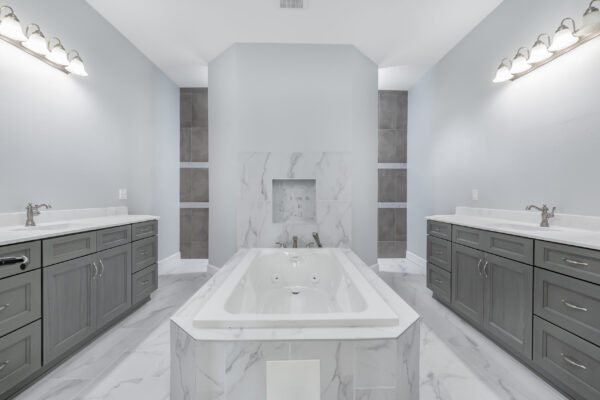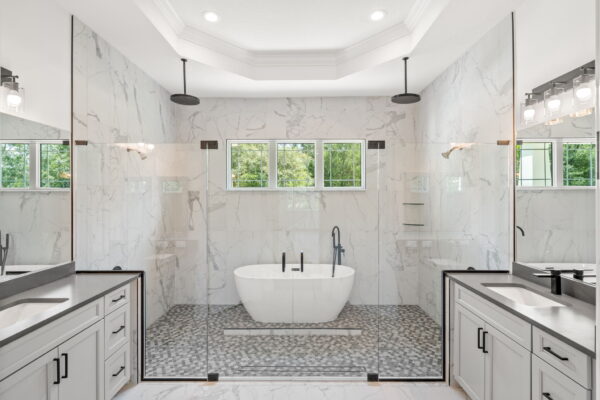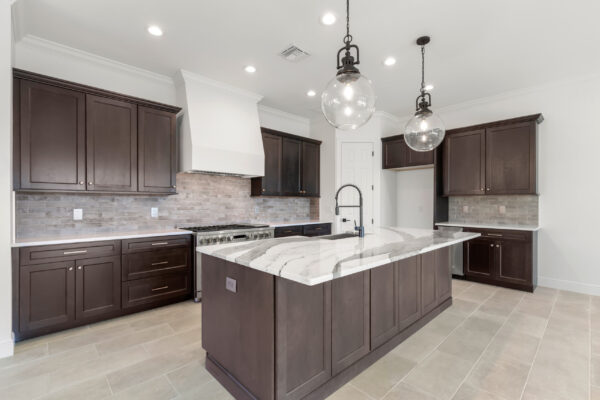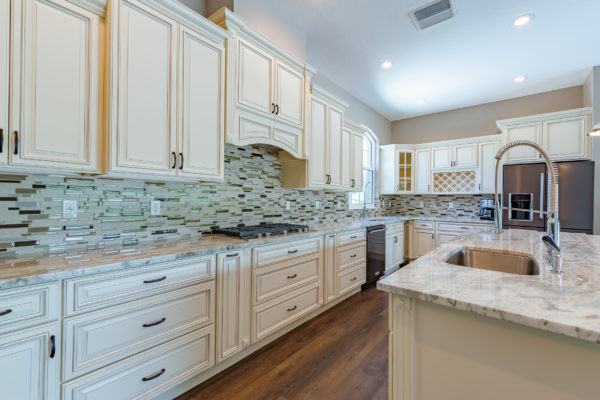Florida offers 825 miles of sandy beaches and sparkling white sand. It’s no surprise that many people are eager to build new homes on the waterfront in Florida. A custom coastal home on the water lets you enjoy an idyllic lifestyle with stunning views. Before you start working with a coastal home builder, you should be aware of coastal building codes and how to stay compliant. Let’s look at what you need to know before you can start building a coastal home in the Sunshine State.
Building a Custom Home on Florida’s Coast
When building a custom coastal home, it’s essential to review building codes before you get started. Coastal Florida has some unique characteristics, which means that the building codes may be different and more complex than in other areas.
- Homes must be able to withstand hurricanes and other severe storms. You need to use materials that are sturdy enough to hold up to high winds.
- Soil conditions can affect the stability of the home.
- Shifting shorelines may impact safety and stability in the future.
- Homes must be of sufficient elevation to prevent flooding.
What to Know About Coastal Florida’s Building Codes
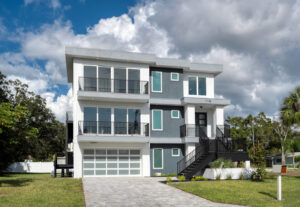 Building codes are complex and often updated. Every municipality has different codes. For this reason, it’s important to consult with local officials or a knowledgeable home builder to keep up with the latest requirements.
Building codes are complex and often updated. Every municipality has different codes. For this reason, it’s important to consult with local officials or a knowledgeable home builder to keep up with the latest requirements.
FEMA, the Federal Emergency Management Agency, sets national guidelines for safety. While FEMA doesn’t enforce building codes, local governments use its recommendations to inform their policies. FEMA provides resources for builders and homeowners that help them create safer homes.
Building codes in Florida are overseen by the Florida Building Commission. Their rulings apply to the entire state and supersede local codes. The Florida Building Code sets statewide standards for building throughout the state. However, local building codes, including those in coastal areas, can be enforced for specific purposes.
Main Elements of Coastal Building Codes
Here are the key factors that are covered in coastal building codes.
- Wind Protection. High winds cause a great deal of damage to homes. Wind load requirements are ratings for construction materials to measure the amount of wind pressure they can withstand. Recent changes in Florida building codes raised the maximum wind load requirements to 140 mph and above in many counties.
- Flood Zones. Many coastal regions are designated as flood hazard areas. FEMA publishes flood maps that estimate the risk of floods in different zones. Site requirements in flood hazard areas include minimum floor elevations, enclosures, and using flood-resistant materials in construction.
- Foundation and Structural Requirements. Foundations in coastal areas need to be reinforced. Materials must be able to resist erosion.
- Stormwater Management. Drainage systems are important everywhere but especially crucial in coastal regions. If water doesn’t drain properly after a storm, it can result in flooding.
What Materials are Best For Coastal Homes?
When choosing materials for a new home, you need to consider your preferences, budget, and the local climate. With a coastal home, you need materials that are saltwater resistant as well as able to withstand high winds. You must consider the materials for all parts of the home, including windows, doors, the roof, and other structural elements.
For exteriors, fiberglass and PVC plastic are good choices for durability and holding up to storms.
Environmental and Sustainability
Building codes consider environmental impact as well as safety. A sustainable and environmentally-friendly home is better for both you and the environment. Here are some ways to build a sustainable coastal home.
- Install Solar Panels. Florida gets abundant sunshine, making solar panels an economical choice.
- Install an Efficient HVAC System. You need the right temperature control system in coastal Florida. In particular, you want to stay cool during the summer months. Current regulations require that new air conditioners and heat pumps must have a SEER (Seasonal Energy Efficiency Ratio) of at least 15.
- Preserve the Landscape. The less impact you have on the land, the more sustainable your home. For example, choose a location where you won’t have to cut down many trees.
Working With Local Authorities
When building a coastal home on oceanfront or waterfront property, you’ll have to learn how to navigate the permit process. You can get information by consulting the local governments, including the town or city and county. One of the best ways to make sure you comply with building codes is to work with an experienced custom coastal home builder. They will be familiar with the process and will help you find the right location, use the appropriate materials, and handle the permit process on your behalf.
Coastal Building Mistakes to Avoid
In their enthusiasm to build a coastal home, homeowners sometimes rush into the process without sufficient research. This can lead to costly mistakes. Here are a few common pitfalls to watch out for when planning a custom coastal home.
- Choosing the wrong materials. Some materials, such as stainless steel and soft varieties of wood, are susceptible to saltwater damage.
- Building too close to the water. When you build a waterfront home, it’s nice to be close to the beach. However, the closer you are, the more vulnerable you are in the case of a storm. You also need to consider possible shoreline shifts in the future.
- Not getting the right guidance. Trying to navigate the process on your own is risky, especially with a coastal home. You need the help of professionals who can guide you to find the right location and materials.
Build Your Ideal Coastal Home in Florida With Covenant Homes
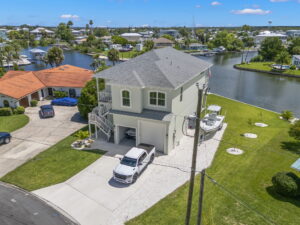 Florida’s many miles of sandy beaches are a national treasure – they are renowned for their beauty, year round sunshine, glittering white sand and sparkling waters. Florida offers endless options for building a coastal home on lakefront, waterfront or beachfront property.
Florida’s many miles of sandy beaches are a national treasure – they are renowned for their beauty, year round sunshine, glittering white sand and sparkling waters. Florida offers endless options for building a coastal home on lakefront, waterfront or beachfront property.
Covenant Homes is a seasoned Florida custom home builder with more than 40 years of experience that can help you build the coastal home of your dreams. We’ll work closely with you every step of the process and make sure your home is safe, sturdy, and compliant. Reach out to us online to schedule a free consultation.
View Our Floor Plans

